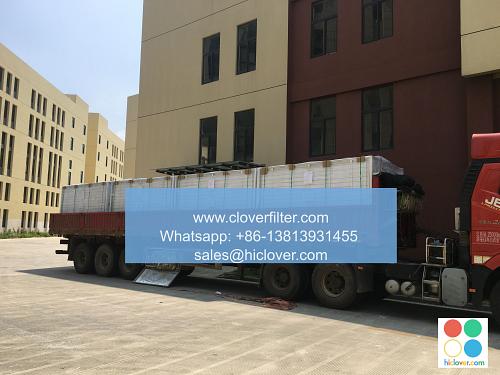Air Filter Quality Control: The Role of Filter Testing and Certification

Air filter quality control is a critical aspect of ensuring the performance, efficiency, and reliability of air filtration systems in various industries, including industrial air purification, commercial HVAC systems, and residential air cleaning. One of the most effective ways to guarantee air filter quality is through rigorous filter testing and certification processes. In this article, we will delve into the importance of air filter quality control, the role of filter testing and certification, and highlight various application areas where these processes are crucial.
Importance of Air Filter Quality Control
Air filters play a vital role in maintaining indoor air quality (IAQ) by removing particulate matter (PM), gases, and microorganisms from the air. However, poor-quality air filters can lead to reduced system performance, increased energy consumption, and compromised indoor air quality. Effective air filter quality control measures, including filter testing and certification, help ensure that air filters meet the required standards for filtration efficiency, pressure drop, and durability.
Role of Filter Testing
Filter testing is a critical component of air filter quality control, involving a series of laboratory tests and field evaluations to assess the performance of air filters. These tests help determine the filter’s ability to capture particulate matter, gases, and microorganisms, as well as its pressure drop and flow rate. Common filter testing methods include ASHRAE 52.2, EN 779, and ISO 16890, which provide a framework for evaluating air filter performance.
Role of Filter Certification
Filter certification is a formal process that verifies the performance of air filters against established standards and regulations. Certification programs, such as ASHRAE and ISO, provide a level of assurance that air filters meet the required standards for filtration efficiency, pressure drop, and durability. Certification also helps manufacturers demonstrate compliance with regulatory requirements and industry standards, enhancing their reputation and credibility in the market.
Application Areas
Air filter quality control, including filter testing and certification, is essential in various application areas, including:
* Industrial air purification: Air filters are used to remove particulate matter, gases, and vapors from industrial processes, ensuring a safe working environment and preventing equipment damage.
* Commercial HVAC systems: Air filters are used to maintain indoor air quality and reduce energy consumption in commercial buildings, such as offices, schools, and hospitals.
* Residential air cleaning: Air filters are used to remove particulate matter, gases, and microorganisms from residential air, improving indoor air quality and enhancing occupant health.
* Pharmaceutical and healthcare: Air filters are used to maintain sterile environments and prevent contamination in pharmaceutical and healthcare applications.
* Food and beverage processing: Air filters are used to remove particulate matter and microorganisms from air in food and beverage processing facilities, ensuring product safety and quality.
Conclusion
In conclusion, air filter quality control is a critical aspect of ensuring the performance, efficiency, and reliability of air filtration systems. Filter testing and certification play a vital role in guaranteeing air filter quality, and their importance extends to various application areas, including industrial air purification, commercial HVAC systems, residential air cleaning, pharmaceutical and healthcare, and food and beverage processing. By prioritizing air filter quality control, manufacturers and users can ensure the delivery of clean and safe air, while also reducing energy consumption and preventing equipment damage. You haven’t given me a prompt to respond to. Please provide a question or topic you’d like to discuss, and I’ll do my best to assist you.

